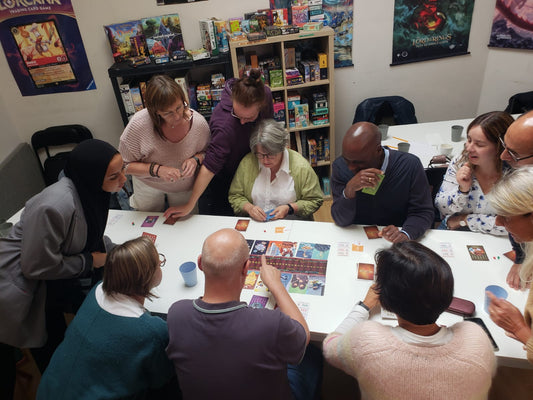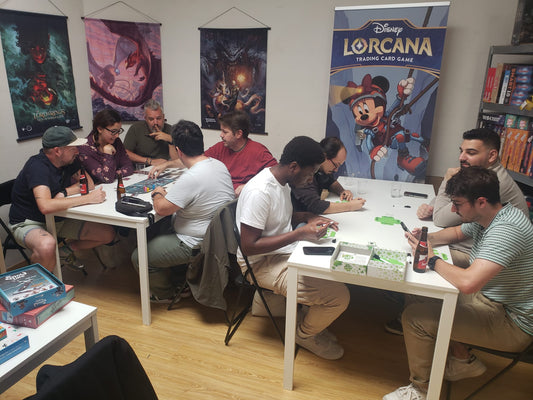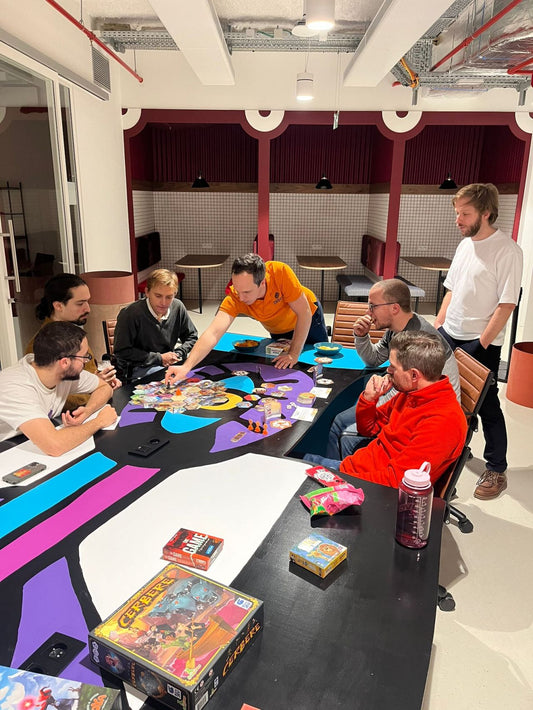Communication is a cornerstone of teamwork. It allows us to share ideas, solve problems and collaborate effectively. However, in a professional environment, it is not uncommon for misunderstandings, silences or tensions to hinder exchanges and information sharing.
This is where board games can play a vital role. By providing a fun and relaxed setting, they allow you to work on key communication skills while strengthening bonds within a team.
Why are board games effective in improving communication?
1. They encourage active listening
In many games, listening to others is essential to success. This practice can easily be transferred to everyday work where active listening is crucial to avoid misunderstandings and facilitate exchanges.
2. They simulate complex communication situations
Some games put players in contexts where information is incomplete or poorly transmitted. This reflects the communication challenges found in a team and provides a unique opportunity to practice solving these problems.
3. They create a safe space to experiment
The playful context eliminates the pressures of hierarchy or professional expectations. This allows everyone to express themselves freely, try new approaches and learn from mistakes in a caring environment.
Examples of game dynamics to boost communication
1. Limited communication games
These games require participants to convey information in non-traditional ways or with constraints. For example:
- The Mind : Players must synchronize their actions without speaking, a perfect exercise for developing non-verbal understanding.
- Magic Maze : A cooperative game where speech is limited, requiring clear and precise exchanges.
2. Guessing or interpretation games
These games promote the transmission and interpretation of messages. For example:
- Codenames : Players must use clues to guess words with an emphasis on clarity and precision.
- Just One : A collaborative game where you have to find the right balance between creativity and simplicity for the team to guess a word.
3. Narrative or storytelling games
These games stimulate expression and creativity while developing listening and rephrasing skills. For example:
- Top Ten : A game where each player must invent a story, mime or even more by positioning themselves on the suggestions of the other players.
- When I Dream : A game where players must interpret clues given by their other players to guess words.
Improve communication for a more cohesive team
Board games are not only an entertainment activity but a real lever to improve communication within a team. By promoting listening, working on the clarity of messages and strengthening ties between colleagues, they allow you to approach communication challenges from a new angle.
Whether it is to strengthen collaboration, defuse tensions or simply learn to understand each other better, board game team building activities offer an effective and accessible solution to create a harmonious and productive work environment.





